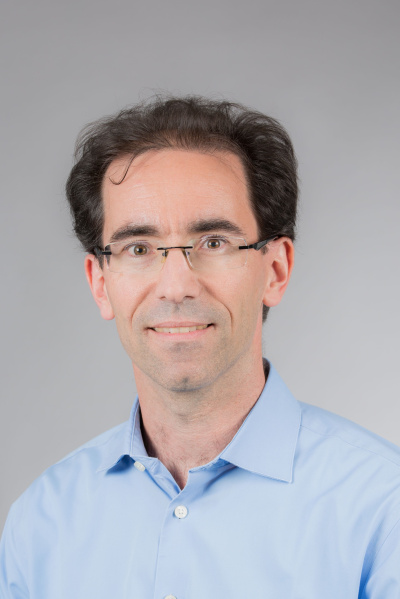Stéphane Cullati

Senior Lecturer in epidemiology and public health, Population Health Laboratory, University of Fribourg and Associated researcher at the Institut of Sociological Research
Version française ci-dessous
MEDICAL SOCIOLOGIST and LIFE COURSE EPIDEMIOLOGIST
Stéphane Cullati is health sociologist and Senior Lecturer at the Population Health Laboratory of the University of Fribourg. He received under- and post-graduate training at the Universities of Lausanne, Geneva (Switzerland) and Grenoble (France) and completed his PhD in health sociology from the University of Geneva. He published over 70 articles, book chapters, and books in collaboration with scholars across Europe and worldwide. His research topics are health inequalities and life course epidemiology. Empirical researches he made were about the impact of public policies on health inequalities, the evolution (historical time trend) of social inequalities in health and in cancer screening. He also conducted theoretical developments in life course and healthy aging researches, on the role of reserves in the development of vulnerability. He directed several projects of research (e.g., LIFETRAIL). Since 2019, he is President of the European Society for Health and Medical Sociology.
Stéphane is also medical sociologist working as senior researcher at the University Hospitals of Geneva since 2007. His research topics are quality and security of health care, health of healthcare professional, interprofessional collaboration and sociology of medical professions. Empirical researches he made were about the role of emotion (related to providing patient care) on the mental health of healthcare professionals. He also studied the role of professional identity in teamwork collaboration, and patient satisfaction with care.
Other affiliations
- Quality of Care Division, Medical Directorate, University Hospitals of Geneva
- Department of General Internal Medicine, Rehabilitation and Geriatrics, Faculty of Medicine, University of Geneva
Education
- Diploma of Advanced Studies in Quality and Security of Care, University of Geneva, 2015
- Ph.D., Sociology, University of Geneva, 2013
- Certificate in Advanced Studies in Patient oriented clinical research, University of Geneva, 2010
- Master, Sociology, University of Grenoble, 2000
- Master, Social sciences, University of Lausanne, 1999
- Bachelor, Social sciences, University of Lausanne, 1998
Teachings
- Methodology
- Safety Culture in Healthcare
- Health Inequalities
- Life Course and Health
- Sociology of Medicine
- Social representations of food
PROFESSIONAL MEMBERSHIPS
- Society for Longitudinal and Life Course Studies
- Swiss Society for Public Health
- European Society for Health and Medical Sociology
- Swiss Sociological Association
selected publications
- Cullati S, Kliegel M, Widmer E, “Development of reserves over the life course and onset of vulnerability in later Life”, Nature Human Behaviour, 2018, 2(8): 551-558. [Abstract]
- Cullati S, Mukhopadhyay S, Sieber S, Chakraborty A, Burton-Jeangros C, “Is the single self-rated health item reliable in India? A construct validation study”, BMJ Global Health, 2018, 3: e000856 [Abstract]
- Cullati S, “The influence of work-family conflict trajectories on self-rated health trajectories in Switzerland: a life course approach”, Social Science & Medicine, 2014, 113: 23-33. [PubMed]
- Cullati S, Rousseaux E, Gabadinho A, Courvoisier DS, Burton-Jeangros C, “Factors of change and cumulative factors in self-rated health trajectories: a systematic review” Advances in Life Course Research, 2014, 19:14-27.[PubMed]
- Cullati S, Le Du S, Raë AC, Micallef M, Khabiri E, Ourahmoune A, Boireaux A, Licker M, Chopard P, “Is the Surgical Safety Checklist successfully conducted? An observational study of social interactions in the operating rooms of a tertiary hospital”, BMJ Quality & Safety 2013, 22(8): 639-46. [PubMed]
Version française
Stéphane Cullati est sociologue de la santé et Maître d'enseignement et de recherche en épidémiologie et santé publique au Laboratoire de santé des populations de l'Université de Fribourg. Il a suivi une formation en sociologie et sciences sociales dans les Universités de Lausanne, Genève et Grenoble et a obtenu son doctorat en sociologie de la santé et du parcours de vie à l'Université de Genève. Il a publié plus de 70 articles, chapitres de livres et ouvrages en collaboration avec des chercheurs en Europe et dans le monde. Ses thèmes de recherche sont les inégalités de santé et l'épidémiologie de parcours de vie. Les recherches empiriques qu'il a effectuées ont examiné l'impact des politiques publiques sur les inégalités de santé, l'évolution (historique) des inégalités sociales de santé, et les inégalités dans le dépistage du cancer. Il a également conduit un développement théorique dans le domaine du parcours de vie et du vieillissement, en mettant en évidence le rôle des « réserves » dans le développement de la vulnérabilité. Il a dirigé plusieurs projets de recherche (par exemple, LIFETRAIL). Depuis 2019, il est président de la Société européenne de sociologie de la santé et de la médecine.
Stéphane est également sociologue de la médecine et des organisations de santé, en qualité de chercheur avancé aux Hôpitaux Universitaires de Genève depuis 2007. Ses domaines de recherche sont la qualité et la sécurité des soins de santé, la santé mentale des professionnels de santé, la collaboration interprofessionnelle en milieu hospitaliser et la sociologie des professions médicales. Ses recherches empiriques portaient sur le rôle des émotions (liée aux soins aux patients) sur la santé mentale des professionnels de santé. Il a également étudié le rôle de l'identité professionnelle dans la collaboration au travail d'équipe et la satisfaction des patients à l'égard des soins. Il enseigne en Faculté de médecine la culture de la sécurité.
